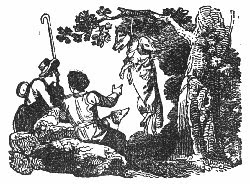What is the first truth? We must examine God’s messengers. "Beloved, do not believe every spirit, but test the spirits to see whether they are from God, for many false prophets have gone out into the world" (v. 1).
The Apostle John begins with a term of endearment. He genuinely loves his fellow brothers and sisters in Christ. And it is this love that motivates him to warn them of the dangers to their faith. He writes to fellow believers from his heart.
Out of love, John starts by informing us of the risk. We all have a tendency to believe people who speak for God without critically analyzing what they are teaching. Why? We have all kinds of reasons. He is a very dynamic speaker. He speaks to me. He is a very moral, upstanding man. He loves the Lord. He is on the radio or TV. My friend loves him. He believes the same things I do. He always quotes from the Bible. To all of these, the Word of God replies: Do not believe every spirit.
John follows up this risk with a requirement, telling us what we must do. We are to test the spirits to see whether they are from God. Christianity is a faith that requires discernment. Followers of Christ need to believe God's truth and to reject all error. Unfortunately, I often think that the reason we don't practice discernment is because it is hard work. We'd rather veg out in front of the TV after a long day at work rather than study. We'll leave it to the theologians, pastors, and Sunday School teachers. We think, "I'll just take my simple faith and trust in Christ." But this attitude is simply not an option for believers.
Why not? John provides the reason. Many false prophets have gone out into the world. There are people who claim to speak for God or claim to teach his truth who are not actually from Him. They are false prophets and false teachers. And notice that they are not a rare or occasional problem for churches. They are a continual and constant danger. John does not just mention that there are false prophets. He says that there are many false prophets.
But this verse shows us one more thing. These false teachers have gone out into the world. We are dealing with a worldwide problem! No Christians are exempt. Yes, this includes Africa. We are not afforded the luxury of turning a blind eye to our brothers and sisters in Christ globally who are struggling with false teaching. All of us need to counter the errors that oppose our faith.
 Jesus Himself warned us all about this danger in Matthew 7:15-23. He begins by telling us, "Beware of false prophets, who come to you in sheep’s clothing but inwardly are ravenous wolves" (v. 15). False prophets and teachers are not usually easy to identify. They appear as one of us, sincere in their devotion to the Lord.
Jesus Himself warned us all about this danger in Matthew 7:15-23. He begins by telling us, "Beware of false prophets, who come to you in sheep’s clothing but inwardly are ravenous wolves" (v. 15). False prophets and teachers are not usually easy to identify. They appear as one of us, sincere in their devotion to the Lord.Which brings us back to where we began. We must examine God’s messengers. We are not free to skate by on a basic trust in Jesus. Trusting in Jesus calls us to know who He is, to understand what He has done, and to examine those who claim to speak about Him or for Him. Additionally, as God allows, we are to lovingly help fellow believers to know God's truth and to reject all error.
Is practicing this first truth easy? No. But if we are empowered by the Holy Spirit and armed with the Word of God, we can remain faithful to Christ. Next Monday, we'll identify the second truth given to us.



